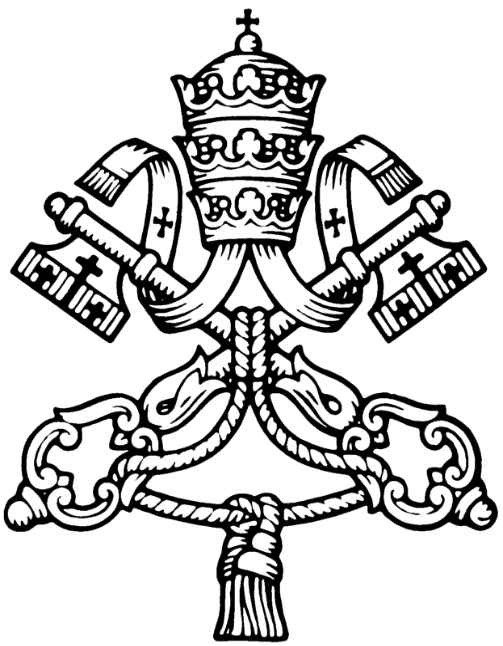Dottore della Chiesa e CoPatrono della Educazione
John Henry Newman (Londra, 21 febbraio 1801 – Edgbaston, 11 agosto 1890) è stato proclamato dottore della Chiesa e co-patrono delle università e dei centri educativi cattolici da papa Leone XIV il 1 novembre 2025 durante la celebrazione eucaristica del Giubileo del Mondo Educativo.
Fu dal 1824 al 1845 presbitero della Chiesa Anglicana. Nei suoi scritti giovanili visse con un certo disagio la fase di crescente secolarismo dei suoi tempi. Dopo essere entrato nel Movimento di Oxford, ne divenne uno dei principali animatori. Nel 1845 si convertì al cattolicesimo, venendo di nuovo ordinato presbitero nella Chiesa cattolica nel 1847. Fonda in Inghilterra la società di vita apostolica della Confederazione dell’Oratorio di San Filippo Neri.
Particolarmente lungimirante fu la sua decisa convinzione che anche i laici dovessero partecipare attivamente alla vita della Chiesa. Fu elevato al Cardinalato nel 1879 da Papa Leone XIII un anno prima della sua morte. Fu beatificato il 19 settembre 2010 da papa Benedetto XVI e proclamato santo il 13 ottobre 2019 da papa Francesco. Sulla sua tomba è scolpito l’epitaffio latino, da lui stesso composto, che traccia sinteticamente la sua parabola umana, religiosa e intellettuale: «Ex umbris et imaginibus in veritatem».
Nella bellezza della lingua originale, verranno qui presentati alcuni brevi passi di San John Henry Newman sul valore e sui principi dell’educazione cattolica, principalmente elaborati ed espressi nel suo celebre testo “The Idea of a University” pubblicato per la prima volta nel 1873:
[University] is a place of teaching universal knowledge.
v
An academical system without the personal influence of teachers upon pupils, it is an arctic winter; it will create an ice bound, petrified, cast-iron University, and nothing else…I have known a time in a great School of Letters, when things went on for the most part by mere routine, and form took the place of earnestness. I have experienced a state of things, in which teachers were caught off from the taught as by an insurmountable barrier.
v
The principle of real dignity in Knowledge, its worth, its desirableness, considered irrespectively of its results, is its germ within it of a scientific or a philosophical process. This is how it comes to be an end in itself; this is why it admits of being called Liberal. Not to know the relative disposition of things is the state of slaves or children; to have mapped out the Universe is the boast, or at least the ambition, of Philosophy. Moreover, such knowledge is not a mere extrinsic or accidental advantage, which is ours today and another’s tomorrow, which may be got up from a book, and easily forgotten again, which we can command or communicate at our pleasure, which we can borrow for the occasion, carry about in our hand, and take into the market; it is an acquired illumination, it is a habit, a personal possession, and an inward endowment. And this is the reason, why it is more correct, as well as more usual, to speak of a University as a place of education, than of instruction, though, when knowledge is concerned, instruction would at first sight have seemed the more appropriate word. We are instructed, for instance, in manual exercises, in the fine and useful arts, in trades, and in ways of business; for these are methods, which have little or no effect upon the mind itself, are contained in rules committed to memory, to tradition, or to use, and bear upon an end external to themselves. But education is a higher word; it implies an action upon our mental nature, and the formation of a character; it is something individual and permanent, and is commonly spoken of in connexion with religion and virtue.
v
If then I am arguing, and shall argue, against Professional or Scientific knowledge as the sufficient end of a University Education, let me not be supposed, Gentlemen, to be disrespectful towards particular studies, or arts, or vocations, and those who are engaged in them. In saying that Law or Medicine is not the end of a University course, I do not mean to imply that the University does not teach Law or Medicine. That indeed can it teach at all, if it does not teach something particular? It teaches all knowledge by teaching all branches of knowledge, and in no other way. I do but say that there will be this distinction as regards a Professor of Law, or of Medicine, or of Geology, or of Political Economy in a University and out of it, that out of a University he is in danger of being absorbed and narrowed by his pursuit„ and of giving Lectures which are the Lectures of nothing more than a lawyer, physician, geologist, or political economist; whereas in a University he will just know were he and his science stand, he has come to it, as it were, from a height, he has taken a survey of all knowledge, he is kept from extravagance by the very rivalry of other studies, he has gained from them a special illumination and largeness of mind and freedom and self-possession, and he treats his own in consequence with a philosophy and a resource, which belongs not to the study itself, but to his liberal education.
v
For instance, a great memory, as I have already said, does not make a philosopher, any more than a dictionary can be called a grammar. There are men who embrace in their minds a vast multitude of ideas, but with little sensibility about their real relations towards each other. These may be antiquarians, annalists, naturalists; they may be learned in the law; they may be versed in statistics; they are most useful in their own place; I should shrink from speaking disrespectfully of them; still, there is noting in such attainments to guarantee the absence of narrowness of mind. If they are nothing more than well-read men, or men of information, they have not what specially deserves the name of culture of mind, or fulfils the type of Liberal Education. In like manner, we sometimes fall in with persons who have seen much of the world, and of the men who, in their day, have played a conspicuous part in it, but who generalize noting, and have no observation, in the true sense of the word. They abound in information in detail, curious and entertaining, about men and things; and, having lived under the influence of no very clear or settled principles, religious or political, they speak of every one and every tiling, only as: so many phenomena, which are complete in themselves, and lead to nothing, not discussing them, or teaching any truth, or instructing the hearer, but simply talking. No one would say that these persons, well informed as they are, had attained to any great culture of intellect or to philosophy.
v
That only is true enlargement of mind which the power of viewing many things at once as one whole, of referring them severally to their true place in the universal system, of understanding their respective values, are determining their mutual dependence. Thus is that form of Universal Knowledge, of which I have on a former occasion spoken, set up in the individual intellect, and constitutes its perfection. Possessed of this real illumination, the mind never views any part of the extended subject-matter of Knowledge without recollecting that it is but a part, or without the associations, which spring from this recollection. It makes every thing in some sort lead to every thing else; it would communicate the image of the whole to every separate portion, till that whole becomes in imagination like a spirit, every where pervading and penetrating its component parts, and giving them one definite meaning. Just as our bodily organs, wean mentioned, recall their function in the body, as the word ‘creation’ suggests the Creator, and ‘subjects’ a sovereign, so, in the mind of the Philosopher, as we are abstractedly conceiving of him, the elements of the physical and moral world, sciences, arts, pursuits, ranks, offices, events, opinions, individualities, are all viewed as one, with correlative functions, and as gradually by successive combinations converging, one and all, to the true centre.
v
…no book can convey the special spirit and delicate peculiarities of its subject with that rapidity and certainty attend on the sympathy of mind with mind through the eyes, the look, the accent, and the manner, in casual expression thrown off at the moment, and the unstudied turns of familiar conversations…The general principles of any study you may learn by books at home; but the detail, the colour, the tone, the air, the life which makes it live in us, you must catch all these from those in whose it lives already…we must come to the teachers of wisdom, we must repair to the fountain, and drink there.
v
The natural truths of science, physical, moral, social, political, material, are all from God—as those of the supernatural order are. Man abused supernatural truths in the medieval time, as well as used them; and now man uses natural truths, as well as abuses them. I am not determining which of the two abuses is the greater profanation, I only say that the one age is not all light, the other all darkness; and I think that, in matter of fact, more can be said for this age than you seem to allow.
San John Henry Newman, prega per noi.


